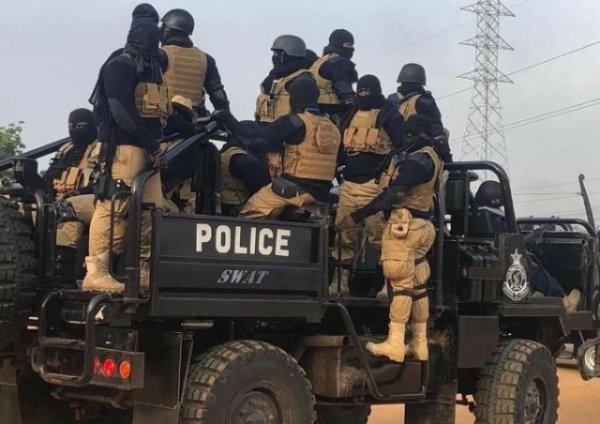National SWAT is illegal and must be excluded from elections –Dr. Agordzo
ACP Dr. Benjamin Agordzo, Police Planning Officer at the UN Mission Support for Justice Reform, has called for the exclusion of the National Special Weapons and Tactics (SWAT) unit from Ghana’s 2024 general elections, labeling the unit as “illegal” and unnecessary.
Speaking at the Peace Through Democracy forum organized by the GIMPA Law Students Association on Wednesday, Dr. Agordzo expressed concerns over the SWAT unit’s legality and its role within the National Security framework. He emphasized that, according to Ghana’s Constitution, only the Ghana Police Service is authorized to operate as a police service unless created by an Act of Parliament.
“Where does the National SWAT come from? Who created it, and under what legal authority?” he questioned, highlighting that the unit’s existence is a breach of constitutional provisions. Dr. Agordzo warned that deploying the SWAT during elections could jeopardize peace and compromise the credibility of the electoral process.
He recalled the controversial involvement of SWAT in the 2019 Ayawaso West Wuogon by-election, which was marred by violence, including a shooting incident that left 18 people injured and an observer assaulted. “Ayawaso West Wuogon is still fresh in our minds,” Dr. Agordzo remarked, stressing that the violence underscored the dangers of using SWAT in electoral settings.
Dr. Agordzo argued that election security should be exclusively managed by the police, supported by specially trained officers when necessary. He criticized the SWAT unit’s orientation, claiming it was aligned with serving the interests of a specific regime, which could undermine the neutrality of election security operations.
He also suggested alternative strategies, including strengthening the police force’s capacity and engaging with relevant stakeholders early in the election process. “We must differentiate between strategies for by-elections and general elections,” he added, cautioning against over-deploying security forces in a single constituency during national elections.
The senior police officer emphasized the importance of inclusivity in election security planning. “Civil society organizations and think tanks should be included in the National Election Security Task Force,” he proposed, noting that their participation would ensure greater transparency and a wider range of perspectives.
Concluding his remarks, Dr. Agordzo urged authorities to refrain from deploying the military to polling stations, citing the volatile situation in Techiman South as a recent reminder. “We can conduct this election peacefully without military involvement,” he said.


DONATION TO SUPPORT THIS WEBSITE: 0599896099 +233599896099 Thank you for your contribution!
Related



















































